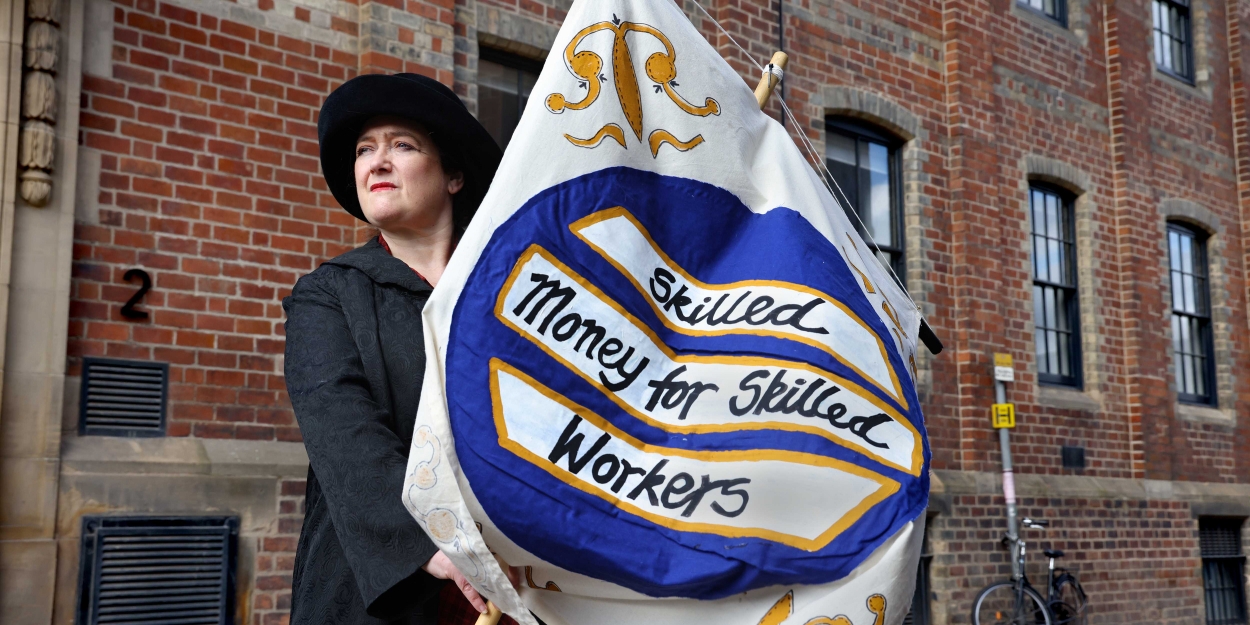CHOPPED LIVER AND UNIONS Will Return to Edinburgh Fringe
The show will run 3-24 August.

“You cannot expect to be invited to the table; you must demand they set your place” – Sara Wesker’s determination and drive was vital to empowering women in the workplace.
Chopped Liver and Unions returns to the Fringe after a highly successful run in 2023, an OffFest award nomination and a transfer to New York as part of the Brits Off Broadway season at 59E59 Theaters.
This time round performer Lottie Walker and director Laura Killeen will present a specially adapted and extended version of J.J. Leppink’s play.
It takes audiences deeper into the struggles of one of the most dynamic and colourful figures in the history of trade unionism and the battle for women’s rights.
A female-driven production, it brings to life a figure who was familiar across the whole of London’s East End a century ago.
She strove for better pay and conditions for women textile workers, founded a women’s union and fought Mosley’s fascist Blackshirts at the Battle of Cable Street.
It’s a compelling story about some of the formative campaigns to oppose the exploitation of women – a group with few weapons at their disposal.
Sara points out that they: “do not have money, or power, or physical strength. Striking, and raising our voices in song, are the only tools that we have.”
Lottie, herself a working class East Ender, says that while it’s a story from a century ago it is very much a play for the world today.
She said: “Look around today and you’ll see many of the same problems that Sara witnessed in the 1920s and 30s - families struggling to make ends meet, women being exploited, fascism on the rise, and appalling national and international injustice.
“This play shows how Sara raised a banner of resistance, sacrificing her own personal happiness in the process, in order to begin building something better for us all.”
The extended version of the show not only goes further into the story of this largely forgotten heroine but includes more protest songs and images from the era.
Music was of especial importance as one of Sara’s most momentous acts was to lead the “singing strikers” of 1928 – female garment workers who, lacking any strike pay, sang on the picket lines in return for donations from passers-by.
The play is particularly relevant right now as the prospect of industrial action for equal pay has been growing across Scotland.
Comments

Videos

